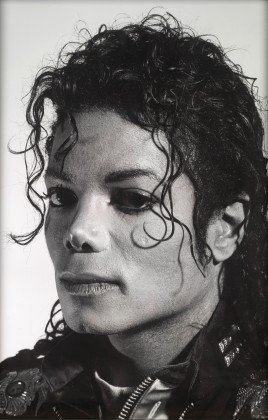Erwin Wurm
Gottfried Helnwein
Helmut Newton
Franz West
Chuck Close
John Coplans
Elke Krystufek
Marie Jo Lafontaine
Klaus Albrecht Schroder
Antonia Hoerschelmann
17/6/2009
Body and Language
Albertina, Wien
Contemporary Photography

Curators Klaus Albrecht Schröder, Antonia Hoerschelmann
Whatever their artistic origins or national provenance, Erwin Wurm, Gottfried Helnwein, Helmut Newton, Franz West, Chuck Close and John Coplans as well as Elke Krystufek and Marie Jo Lafontaine focus on the body, its qualities of expression, or text and body (image) combinations in their works. The exhibition Body and Language presents these artistic positions in a show comprising about 80 photographic works from the holdings of the Albertina.
Elke Krystufek, Marie-Jo Lafontaine, Erwin Wurm, Helmut Newton, Gottfried Helnwein,
Chuck Close, and John Coplans make the human body and its social meaning the focus of
their works. The exhibition Body and Language presents some 80 photographic works and
selected objects from the Albertina’s holdings.
Erwin Wurm born in 1954, is one of the most renowned contemporary artists in Austria. His
Wurm,
“sculptures” provide scenarios of an absurd encounter between the human body and an
object. Only when encountering such banal things as a piece of fruit, an article of clothing,
and packaging material does one’s body become aware of itself. It is the encounter of two
bodies that are obviously not made for each other.
Gottfried Helnwein born in 1948, published his book Faces, containing portraits of
Helnwein,
prominent personalities and celebrities, in 1992. Helnwein understands photography as an
autonomous artistic medium. His Faces, thanks to the expressive pathos of dramatic black
and white photography, enhance a person’s public image.
Helmut Newton 1920–2004, took advantage of commissions he received from the fashion
Newton,
and advertising industries in order to stage his own, if not to say common male, fantasies in
the medium of photography and redefine the limits of taboos. The series Big Nudes, done
between 1980 and 1993, was inspired by life-sized mug shots of the Baader-Meinhof Group.
Thus the fashion photographer initially referred to his female nudes as The Terrorists.
Elke Krystufek born in 1970, addresses the social norms of female identity and its self-
Krystufek,
perception in various media. Her works are located on the borderline between art and life
and privacy and publicity. Time and again they revolve around the artificial figure of “Elke
Krystufek”, conceived and showcased by the artist, who combines her image with fragments
of her own texts.
John Coplans, 1920–2003, documents his body’s process of ageing in his black and white
Coplans
photographs. The artist fragments his body photographically into individual parts, excluding
his head. Thus the individual is elevated to a general level. The naked body unites past,
present, and future. For the artist, it does not belong to a particular social stratum, has no
geographic origins, and is not confronted by language barriers.
Chuck Close born in 1940, crosses the boundaries between Pop Art and Minimal Art. The
Close,
photorealism of his monumental works is disrupted from within through the minimalist
principle of rigid systematization and the methodical planning of the works’ execution. The
strict rhythm of the fanfold form likewise corresponds to the approach of serial conception,
governed by the alternation of photograph and text.
The Belgian Marie-Jo Lafontaine born in 1950, ranks among today’s most acclaimed women
Marie- Lafontaine,
artists. In her recent works she frequently deals with such subjects as personal and social
identity, adolescence, and youth culture. The youngsters’ faces express doubt, scepticism,
rejection, superiority, and self-confidence. Marie-Jo Lafontaine presents these portraits as
images of today’s youth.
Image: Gottfried Helnwein, Michael Jackson, Köln, 1988
Press contact:
Verena Dahlitz (head) T +43 (0)1 534 83-510 , M +43 (0)699 12178720 v.dahlitz@albertina.at
Barbara Schober T +43 (0)1 534 83-511 , M +43 (0)699 10981743 b.schober@albertina.at
Press conference 18 June 2009, 10 a.m.
Albertina
Albertinaplatz 1, 1010 Vienna
Opening hours
Daily 10 a.m. - 6 p.m., Wednesday 10 a.m. - 9 p.m.



